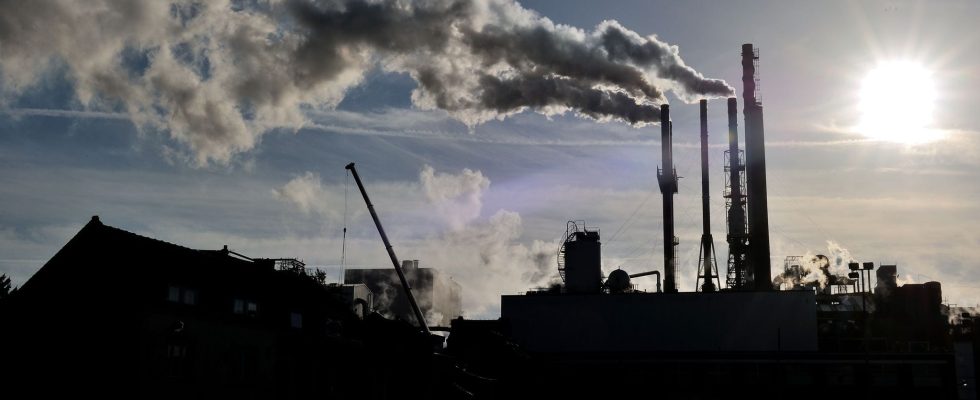He is concerned about the delay of certain important texts, further increased by the dissolution. In its annual report published Thursday June 20, the High Council for the Climate welcomes France’s progress in reducing CO2 emissions but advocates a “change of scale in adaptation” to climate change.
“It is becoming crucial that climate action effectively protects children, households and businesses. Despite significant progress, adaptation efforts remain out of step with vulnerabilities and needs,” said the president of the HCC, the French-Canadian climatologist Corinne Le Quéré, during a presentation to the press. The report of more than 230 pages written by a panel of experts advocates a “change of scale in adaptation”.
Last year ranked as the second warmest year in France. The country has experienced a lack of water locally in recent years due to drought, devastating giant fires, heatwaves, intense storms and floods.
Gabriel Attal’s government was in the process of preparing the third National Plan for Adaptation to Climate Change (PNACC-3), based on the hypothesis of a warming of 4°C in France by the end of the century ( against 1.7°C to date). But the consultation process has dragged on and it is now suspended from the majority and the government which will emerge from the legislative elections of June 30 and July 7.
“Serious concern”
The HCC, among 65 recommendations, asks to “rapidly finalize and adopt” this text, like others which structure the government’s action on climate, the national low carbon strategy (SNBC) or the multi-annual energy programming ( PPE). It is “urgent in order to give each actor the visibility necessary to act consistently over time”, presses Corinne Le Quéré.
For the executive, attached to its ecological planning, the content of the roadmaps in terms of energy and carbon neutrality is “already on the table” if it has not yet been legally formalized. As for the adaptation plan, it is “well ready”, it is argued. If the dissolution further delayed the publication of certain texts, the HCC refused to comment on the current political situation.
The first mandate of the independent body, responsible for evaluating public action on climate since 2018 during Emmanuel Macron’s first mandate, ends on June 24. A long-time contributor to the IPCC, agronomist Jean-François Soussana was appointed this Thursday president of the High Council for the Climate. “There is no ambiguity about the fact that the HCC plays an essential role and we wish to perpetuate it,” underlines the executive.
“The pace of decarbonization in France, with a drop in gross greenhouse gas emissions which accelerated in 2023, is approaching for the first time the pace expected to achieve its 2030 climate objectives,” welcomes the HCC. France plans a 50% drop in gross emissions by this time (compared to 1990), a variation of the European ambition “Fit for 55”.
“Retreat”
Gross emissions actually fell by 5.8% last year, at least a third of which can be explained by cyclical factors such as the restart of nuclear reactors. Up to two thirds of this decline can conversely be considered as the result of public policies, according to the report. He welcomes “significant but uneven progress” depending on the sector in policies, with some setbacks, particularly for agriculture. This sector “suffers from a lack of coherence between agricultural, food, environmental and climate policies”, regrets Corinne Le Quéré.
“Agricultural policies have been marked over the last 12 months by a decline in public climate action,” laments the report, alluding in particular to the responses to the agricultural anger movements at the start of the year.
Experts also point out the absence of a “major strategy or plan for regenerating forest ecosystems”, while the capacity of soils and trees to absorb CO2 has been weakened for years. On a slightly more distant horizon, the High Council calls for “a clear course for the 2030-2040 decade, to provide ourselves with the capacity to achieve carbon neutrality by 2050”.
